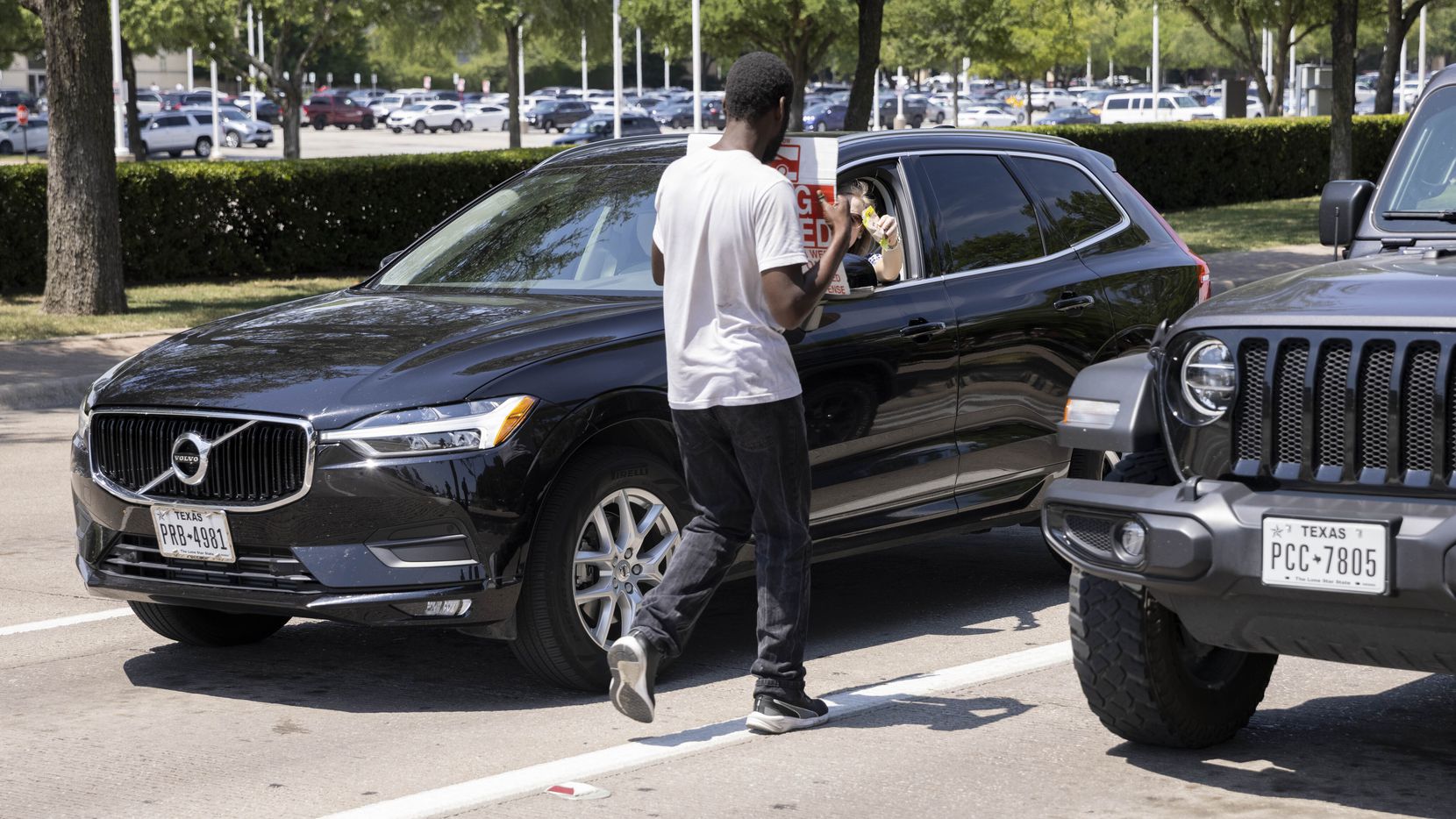People who violate the rule could be fined up to $500. It comes as the city tries to address complaints of people soliciting drivers for money
Standing or walking on a median to ask for money from drivers in Dallas could soon lead to a $500 fine.
Amid growing complaints, the Dallas City Council on Wednesday approved two new ordinances designed to keep panhandlers away from drivers.
One new city ordinance bans pedestrians from roadway medians less than 6 feet wide, in the middle of streets without medians and in clear zones. That means bike lanes, road shoulders or any other unobstructed area bordering a roadway that allows a driver to stop safely or regain control of a vehicle that has left the street.
The second allows city marshals to issue citations to people violating that ordinance as well as an existing Dallas ordinance that bans people standing on public property near a public roadway from soliciting drivers or trying to attract their attention to ask for money, goods or some other service.
The municipal court citations can lead to fines up to $500.
Arrest warrants could be issued for people who don’t respond to the citation, City Attorney Chris Caso told council members. The median ban will be reviewed by the City Council annually. The ordinances will go into effect within days.
The city has pushed a public campaign trying to dissuade motorists from offering money or food to people on medians and standing near highway exits. Officials are considering other measures like placing rocks and shrubbery on medians to keep people from standing on them.
But the median ban has drawn concerns that it could disproportionately impact Dallas’ homeless population, putting the city’s most vulnerable residents at risk of being further disadvantaged.
Council member Adam Bazaldua, who cast the lone vote against the median ban, called it “absurd” and “absolutely despicable.” He described that ordinance as an effort by the city to enforce poverty, criminalize homelessness and panhandling, and blasted efforts by city officials to frame it as driven by traffic safety concerns.
Banning people from walking and standing on medians has been presented as an option to council members by city staff to address panhandling since at least last year. Panhandling is constitutionally protected as freedom of speech.
“It is extremely disingenuous to stand here and tell us that this is about public safety. This is about NIMBYism,” Bazaldua said. “I know that there are people who take advantage of the system and if you think we can differentiate that by sending out enforcement versus the mom that is out there actually asking for $1 to feed her kids? Shame on us.”
But others lauded the ban, saying it’ll be enough of a deterrent to prevent possible crashes and lessen cases of drivers being harassed by some aggressive panhandlers.
“I think it’s justified on public safety grounds,” council member Paul Ridley said. “I think it’s a matter of common sense that where pedestrians are most at risk for injury or fatality from collisions with vehicles is when they are present in the right of way.”
Council member Gay Donnell Willis also boiled the issue down to public safety. She said she has called 911 several times to report seeing people on road medians who appear to be intoxicated, hallucinating and in need of help. She said she believed the ordinance could put people on the path of getting help and decrease possible risks to themselves and motorists.
“I’m not as concerned as the genesis of this as I am about where we are today,” Willis said, citing statistics and local law enforcement support. “The bottom line is the safety of our citizens — all citizens — whether they are driving on the roadway or whether they are in the path of automobiles that can hurt them.”
Both rules have exemptions.
The median ban won’t apply to pedestrians crossing a divided street “in the most direct route possible,” or who are injured in a crash, giving emergency aid to someone else or in the middle of the road while following the directions of police.
It also won’t apply to people performing permitted work in the right of way, such as putting up or taking down road barricades. People walking or standing on a paved sidewalk near a curb in a clear zone also would be exempt.
The existing rule allows drivers and other witnesses who see people panhandling to file a complaint with the city attorney’s office and permits submitting video footage as an example of evidence, according to the city code.
Dallas Department of Transportation director Gus Khankarli and police Assistant Chief Michael Igo gave different numbers to council members on the amount of pedestrians killed so far this year, but both noted 2022′s tally is slightly higher than this time last year. Khankarli and Igo said most pedestrians are killed while in or walking through unmarked crosswalks.
Igo said of 45 pedestrian-related deaths officers have responded to this year, he knew of only one case where evidence showed the person was killed after stepping off a road median and being hit by a vehicle.
“We don’t have supporting information nor is it documented anywhere in our information that any driver inattention or distraction was caused by subjects on the medians,” Igo said. He said the department would support any city traffic or rule changes to help people more safely cross roadways.
Police Chief Eddie García said median enforcement will be a low priority for officers.
“Obviously, we can enforce. We would use discretion whenever this would occur,” García told council members. “But really, the reality of it is that it would not necessarily be our primary focus with our other priorities in the city that we need to focus on.”
Interim City Marshal David Pughes said marshals will not be patrolling medians to issue people citations and that pedestrians stuck standing on a road divider waiting to safely cross won’t be cited. He said enforcement would most likely happen in cases where marshals are accompanying city homeless solutions and crisis management workers seeking to aid people who don’t have stable shelter.
Marshals have the option to warn people instead of issuing citations, talk with them to get more information on why they’re on the median asking drivers for money, and direct them to resources, he said.
“Punitive we already know doesn’t work. We did that many times previously,” Pughes said. “This is more of that holistic approach.”


